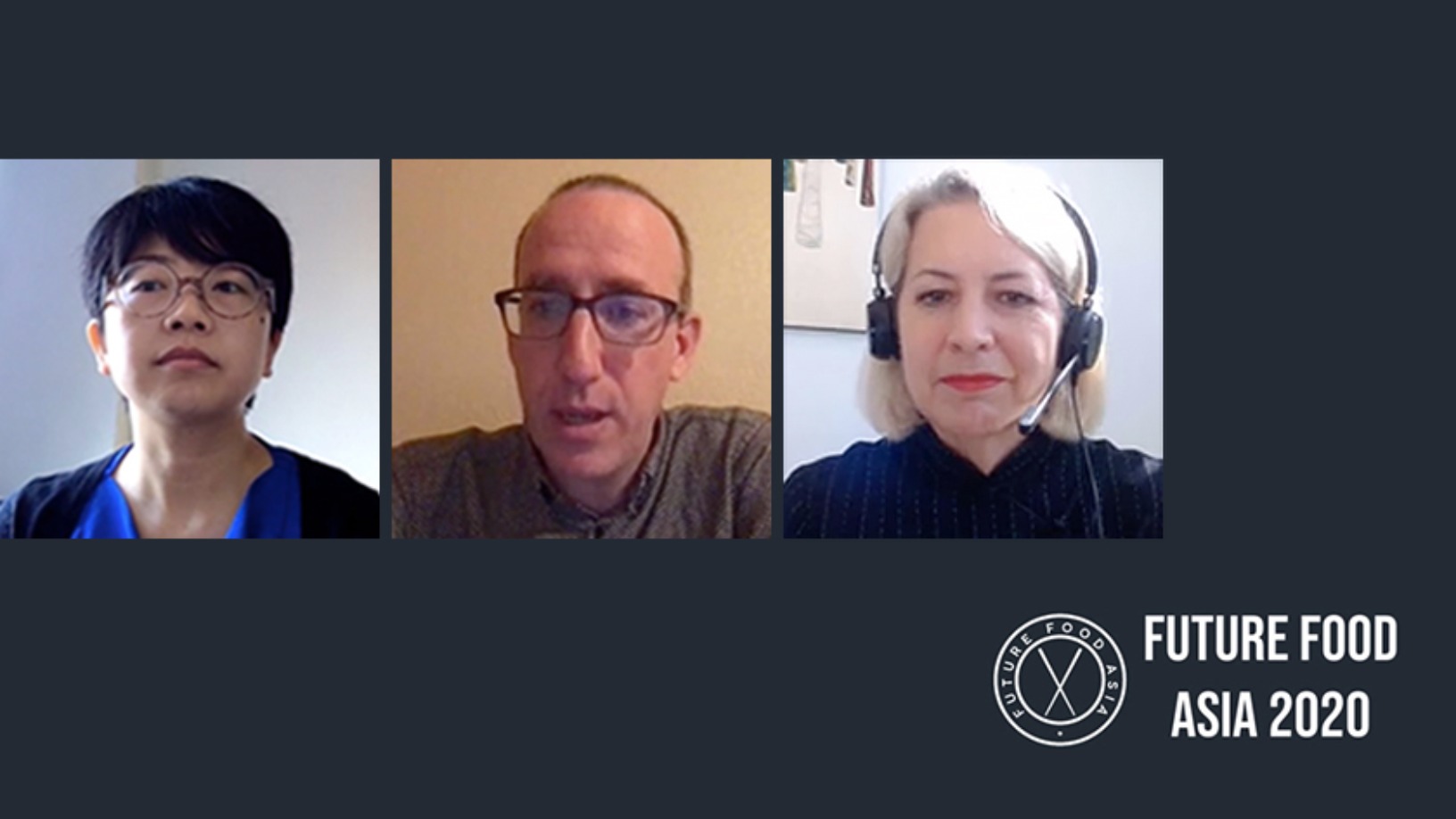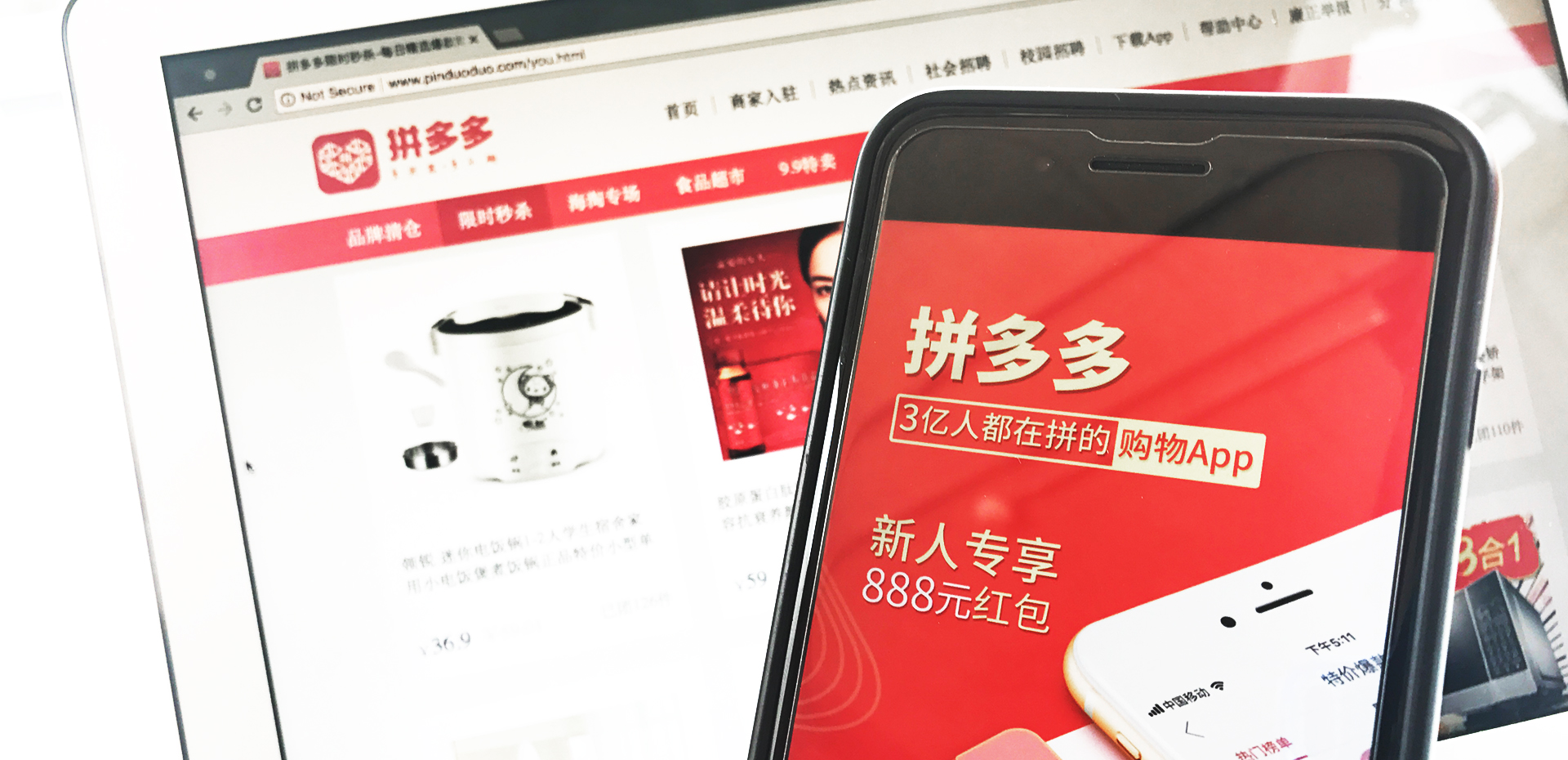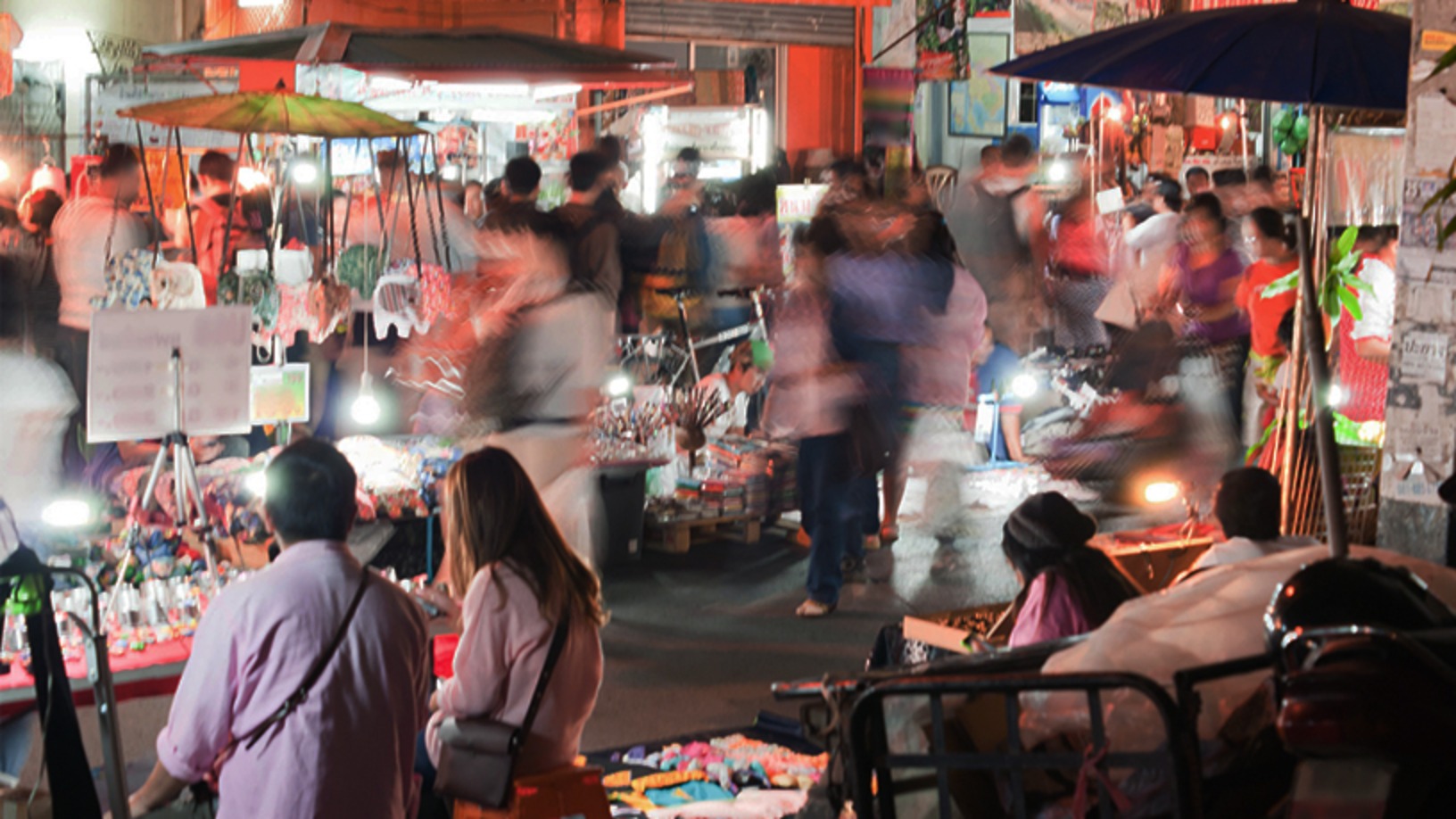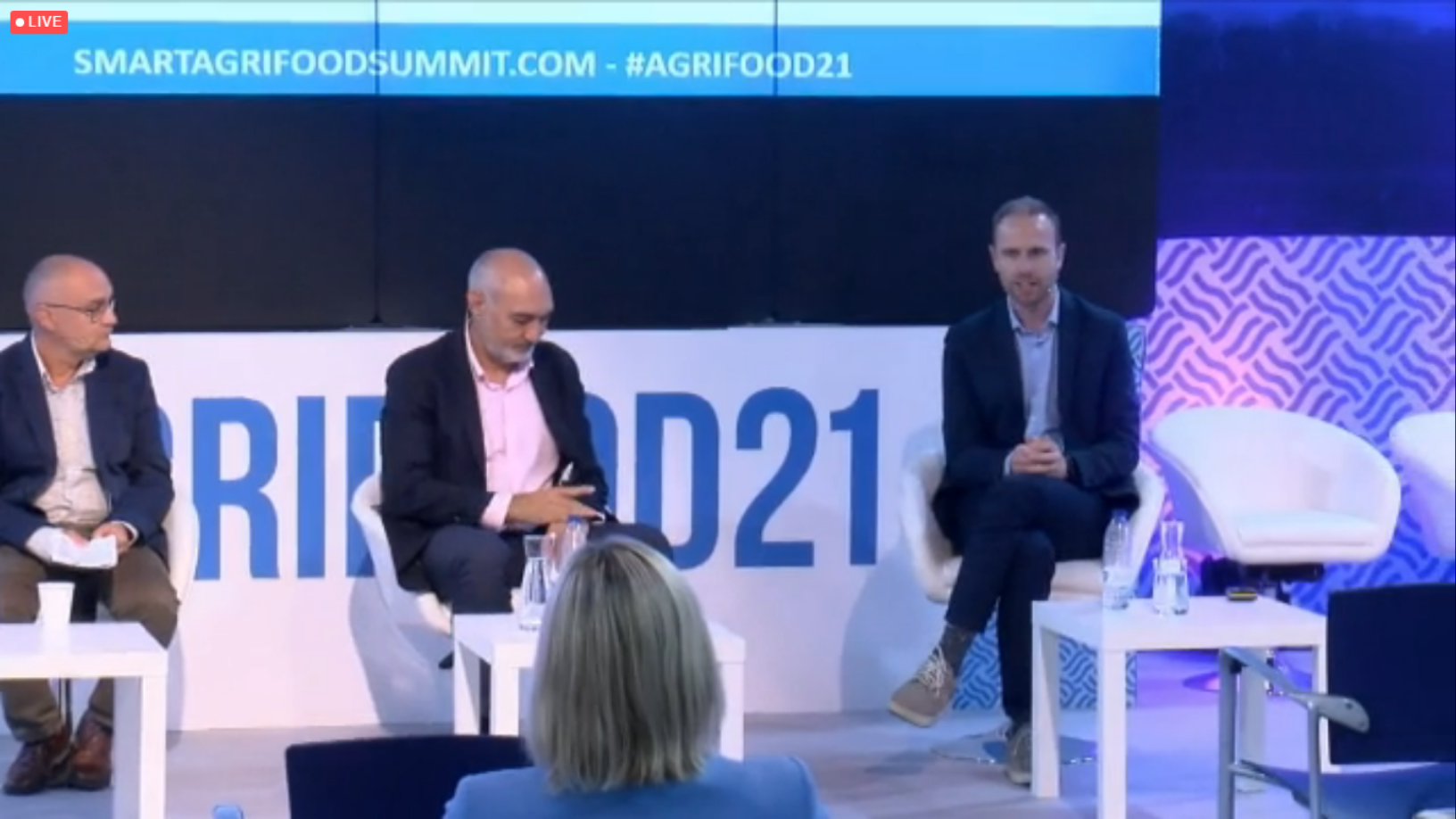How Covid-19 has impacted the agritech sector was a key topic during the Future Food Asia (FFA) 2020 online conference by ID Capital last week. China’s second-largest e-commerce marketplace by number of active users, Pinduoduo, moved swiftly during the pandemic to turn challenges into opportunities, ramping up farmers’ sales of fresh produce directly to consumers.
Pinduoduo, which is also used by thousands of other small sellers like wet market butchers and fishmongers, now aims to become the world’s largest platform for agri produce. Meanwhile in India, pioneer agritech investor Omnivore VC saw increased demand and interest from domestic farmers more willing to try tech solutions, said Managing Partner Mark Kahn.
In a panel discussion during FFA 2020, Kahn and XinYi Lim, Executive Director of Sustainability and Agricultural Impact at Pinduoduo, joined Beverley Postma, CEO of Roundtable on Sustainable Palm Oil, to share how their companies and investees have survived and thrived in the new reality of Covid-19, as well as the impact of the crisis on agri-innovations in their countries.
The following discussion has been edited for length and clarity.
Beverley Postma: What have the last few months looked like inside your businesses? How has Covid-19 acted as an accelerator or a brake?
XinYi Lim: We had to move very quickly in response to Covid-19. It was around Chinese New Year – the worst possible timing, as all the logistics were already running at low capacity and everyone had gone back to their hometowns. And then came the lockdowns. As the government moved quickly to establish green lanes, the logistics capacity ramped up, making it easier for us to fill orders.
Overall, it was definitely an accelerator. We saw that a lot more consumers previously used to buying fresh produce offline were moving online. Pinduoduo benefited from this because we already had a strong reputation for being a platform known for bringing fresh, affordable produce directly from farmers to consumers. We're still seeing a lot of consumers buying fresh produce on our platform.
In February, we established a Help-the-Farmers channel to aid farmers with a disrupted supply chain move their produce online. Using live streaming, we were able to direct more traffic to the areas where we knew there was excess supply. We’ve sold 1.3m tons of agricultural products since February.
We’ve sold 1.3m tons of agricultural products since February
We recently announced a partnership with China Post, whereby they'll build about 150 agricultural production bases in the next three years. This will help us facilitate the logistics for agricultural products.
We're also looking into new business models, for instance, facilitating the matching of offline supply and offline demand through community social buying. One thing that we've learned from the whole experience is the importance of how the situation is changing both on the supply and demand sides. Then we worked together with ecosystem partners to drive longer-term change.
Mark Kahn: Omnivore is really not the hero of this story. We are merely an investor, an advisor, a mentor and a facilitator for a portfolio of over 20 agritech startups, all of which are in India. They're the ones that have performed spectacularly through this difficult period.
The lockdown implemented in India was sudden, with just a few hours’ notice, creating havoc in every aspect of the agricultural value chain. It's to the government's great credit that they recognized the agricultural sector is the source of employment for 100–300m people and had to be allowed to operate. That allowed our portfolio companies and the agri sector in general to start opening up and operating in a more normal fashion.
We have portfolio companies such as DeHaat – the largest farmer platform in India – that have grown throughout the entire crisis. We have portfolio companies like Aquaconnect that have seen increased interest from farmers because of the severe disruption of the traditional aquaculture markets. We have other portfolio companies that, for example, supplied the HoReCa (hotels, restaurants and cafeterias) sector and which suddenly had no customers.
XinYi, you have consumer data at your fingertips, but trends are moving so fast. Did you see any major pivots from purchasing behaviors? And do you think any of those trends are here to stay?
Lim: In terms of consumer behaviors or trends, in terms of the things that consumers want to buy, that's something we constantly utilize right throughout the process of running Pinduoduo. Because, ultimately, our user experience is oriented around a recommendation feed.
So we constantly have to adjust what we show our users based on what we're detecting in terms of their preferences. Maybe I'm somebody who likes to buy cheap apparel, but maybe I have really expensive tastes in food. So the algorithm has to be able to discern all these sorts of different preferences.
As I mentioned earlier, there was a shift we anticipated and did see. People bought more agricultural products and FMCGs online. The trend has continued and hasn't been that surprising to us.
Live streaming also helps foster trust
But behavioral data also suggests an emphasis on social commerce. It's a more interactive form of buying, whereby we encourage users to form group purchases together with their friends. A lot of people were making purchases based on recommendations, especially during the Covid-19 crisis when trust was really important. People were desperately trying to find personal protective equipment but a lot of places had sold out. If you saw a link come through from a trusted contact on WeChat, for instance, you would just click it and place that order.
Live streaming also helps foster trust. For example, you could no longer see or feel the fish or meat online as you used to offline, but now you can actually see the fishmonger or the butcher presenting their products in the wet market. We're seeing that customer engagement has gone up in terms of time and also in terms of their willingness to then convert into buying.
Will they revert to brick-and-mortar stores at some point? Are you seeing demographic changes as an older generation gets more used to online shopping as well? What's your prediction for where we're going to end up?
Lim: I think there will be different spectrums. With regards to the older generation, we did see a number of them try online shopping for the first time during the crisis.
We are now piloting community social buying effort in two cities. This is a bit more of an interim model between offline and online. With community social buying, we have a community leader: somebody who works at an offline store or who lives in the compound and who can mobilize people through WeChat. Some of the older folks prefer someone to just tell them what to buy and how good the price is.
We're experimenting to see how people respond to different modes.
India is very different but equally innovative in solving some of these agricultural challenges. Mark, can you talk a little bit about the difference in India and how powerful it can be in a business context?
Kahn: The aquaculture sector in India is an outlier, with only 120,000 shrimp farmers generating about $6bn worth of exports. It's a relatively small community, but more digitized and with much higher smartphone penetration rate than Indian agriculture as a whole. It was primed for changes and Covid-19 has accelerated this.
As export markets were shut, farmers were much more open to migrating toward platforms that connect them with domestic buyers
As export markets were shut, farmers were much more open to migrating toward platforms such as Aquaconnect, which could connect them with domestic buyers they had never previously spoken to. Eruvak, a portfolio company we backed years ago, focuses on IoT devices for aquaculture. It never found a product-market fit in India, where farmers were a little too traditional and not willing to invest in IoT, and mostly exported its IoT devices globally. Then suddenly, as laborers disappeared and social interaction was limited, technologies that allowed for automation and monitoring became incredibly attractive.
So we have generally seen this acceleration and a shift towards digitization and modernization. And we've seen it really across our entire portfolio.
The shortage of labor may be a driver for some of the digitalization. What do you think?
Kahn: The labor issue in India is complicated. What has happened with Covid-19 is very interesting. The laborers that farmers counted on basically vanished overnight. At the same time, we've had the migration of tens of millions of people into rural India over the last few months because of the lockdown, but it seems they were largely working on their own farms. So we're still seeing an incredible need on the part of farmers. Larger and medium-sized farms that traditionally employed 1–4 people began to look for automation solutions.
We have a portfolio company, Fasal, which makes IoT devices integrated with mobile apps for horticulture, and their demand has exploded over the last few months. Another portfolio company, Tartan Sense, which makes micro-robots for small farms, is also seeing huge demand for completely automated weeding solutions.
I've been working in this space for the last 13 years of my life and it feels like the last 13 months have seen more changes than all of that prior period. It’s pretty exciting.
Farms that traditionally employed 1–4 people began to look for automation solutions
During the Covid-19 pandemic, we've really seen a spotlight on all aspects of sustainability. For a company like Pinduoduo, how do you balance carbon emissions against the convenience that's being demanded?
Lim: When it comes to sustainability concerns, it's actually a mixed bag and there isn't one key metric. Now, more and more consumers are paying attention to whether the agricultural products they purchase are produced in a safe and sustainable way. They want to access quality goods that have been verified. So one of the things we're doing is a research project with the Singapore Institute of Food and Biotechnology Innovation to lower the costs of testing for pesticide residues.
Secondly, we do see people, especially the younger generation, becoming a bit more aware of the carbon footprint of packaging, as well as food delivery or food purchases. But when something is coming from hundreds or thousands of miles away, we have to try something new.
We have our CSR program running Duoduo farms in the southwestern part of China. It’s a very fertile place where you can grow a lot of things, but it's a bit distant for most consumers. What we're trying to do is improve logistics efficiency. By working with midstream providers and logistics providers, we can deliver the produce to consumers with a minimal number of stops and in the most direct fashion possible. It’s in a shorter time and the quality of the product is still pretty fresh. That's going to satisfy consumers’ needs on the quality end, but it minimizes unnecessary carbon emissions at the same time.
Consumers want to access quality goods that have been verified
Mark, how about the investment challenge when everyone is working remotely?
Kahn: I'm going to say something that's probably a little bit controversial, which is that investors historically never really do field work. We do go out, meeting farmers and dealers, but that’s not due diligence. We have realized over the years that in the same amount of time the most valuable due diligence we can do is dig into the data dump provided by a startup about its farmers. There might be 2,000 farmers. I will randomly sample 200 of them and call 200 of them. I can do that from my house and that's statistically significant due diligence that will yield some real insights.
I think what investors need to realize is the limitations of being an investor: you're never going to have as much information as the company. The great thing about Covid-19 is it can rip the mask off of this myth.
We saw so many new innovations in the agri space before the Covid-19 outbreak. Which of them have suffered during the crisis?
Lim: I don't think there's anything that has slowed down due to Covid-19. Across the board, it's definitely renewed concerns about food security. That has implications for farmer productivity. How do we ensure that we can still have a certain amount of production with these disruptions? How do we think about diverse supply chains? A lot of companies involved in this line all benefited, such as alternative or plant-based protein. For China, I would say that isn't something has suffered particularly because of Covid-19.
Kahn: In India,Covid-19 sent people reeling and going back to comfort foods, easy-to-cook foods, durable non-perishables and real culinary staples. They made a lot of Indian food at home during the pandemic as opposed to experimenting with a lot of more Western fads. We have definitely seen a bit of a pause on the innovative food space over the course of the last few months.
Covid-19 has prompted many to have a greater sense of urgency to work together
The theme of this conference is “Food is the new cool.” Can you give some thoughts on what's the coolest new food or agri tech innovation that you've encountered this year? Where would you put your money for 2021? What's cool right now and what's going to stay cool?
Kahn: The coolest thing I see right now is farm platforms coming up and organizing the back-end of India's agriculture ecosystem. Once the base-layer gets built, all other interventions such as life sciences, agribiotech and hardware robots will come and find markets in collaboration with these platforms. Otherwise, it's very hard for those startups to do much alone.
Lim: I think it's the power of partnership. Covid-19 has prompted many parties, including farmers or producers, to have a greater sense of urgency. People are thinking how they can work with different parts of the whole system in different ways. Different players in the system have realized that it’s something we need to prepare well for the next time; they are starting to think how they lay the groundwork and where they need to put their investments.
Any other thoughts to share with us?
Kahn: We have a pretty exciting week in Indian agriculture, seeing the government’s first real reform on agriculture in two decades pass. The government is now willing to fundamentally transform the agricultural system, particularly in agricultural marketing, agricultural infrastructure and the relation between farmers and buyers. It is going to create massive tailwinds for everything we do in agriculture.
Lim: In China, the direction the government has set is quite clear. Food security is kept front of mind. E-commerce is seen as a potential way to help improve the resilience of the food system by bringing products from multiple sources to consumers.
Users gravitate toward the community in a time like this to help them find products and cut through the noise. The element of trust is very important. How do we build communities for farmers where they can share knowledge and get access to the right inputs while at the same time connecting them to consumers for more direct sales? This is the focus at Pinduoduo right now.













